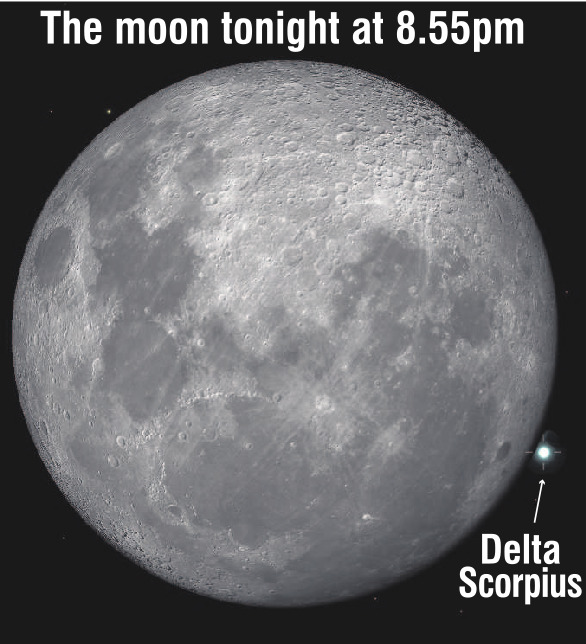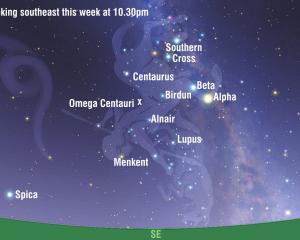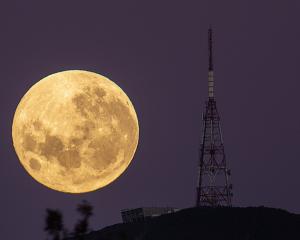
While full moon isn’t usually my favourite time to stargaze, tomorrow night will be different.

Occultations occur when a celestial body, such as the moon, passes in front of a more distant object, temporarily obscuring it from view. In this case, the nearly full moon will gracefully glide in front of Delta Scorpius, a prominent star in the constellation named for the scorpion that stung and killed Orion the Hunter.
Also known as Dschubba, Delta is a close double star system located some 490 light years from Earth. With a magnitude of about 2.3, the star will easily be visible to the naked eye in the run up to the occultation. That being said, because the moon is nearly 100% illuminated and will be very bright, naked eye stargazers may lose the star in the moon’s glare as the two get closer together.
The actual time that Dschubba disappears varies slightly according to your location. In Dunedin, the star will disappear just after 8.55pm.
If you have a telescope it would be best to point it at the moon a few minutes beforehand so you can watch the star approach the dark lunar limb. The star will disappear quite close to a circular crater called Balboa A which is in the Ocean of Storms, a prominent sea on the western side of the moon.
I always love watching occultations and get very excited when the star suddenly disappears.
Because Delta is a double star, the disappearance may not be instantaneous. Keen-eyed observers should look out for a brief flicker before the star finally blinks out.
Over the next hour, the moon will continue its slow journey across the night sky, eventually revealing Delta Scorpius once again as it emerges from the opposite side at 10.05pm.
The reappearance of the star marks the conclusion of the occultation.












